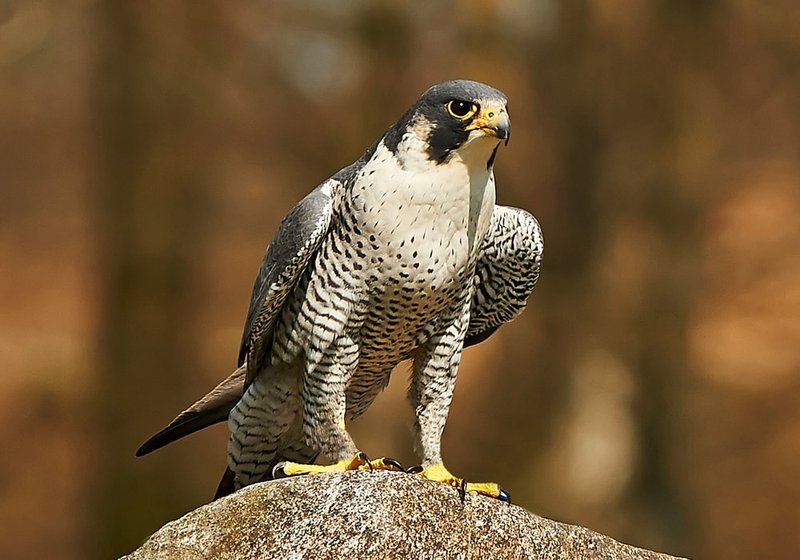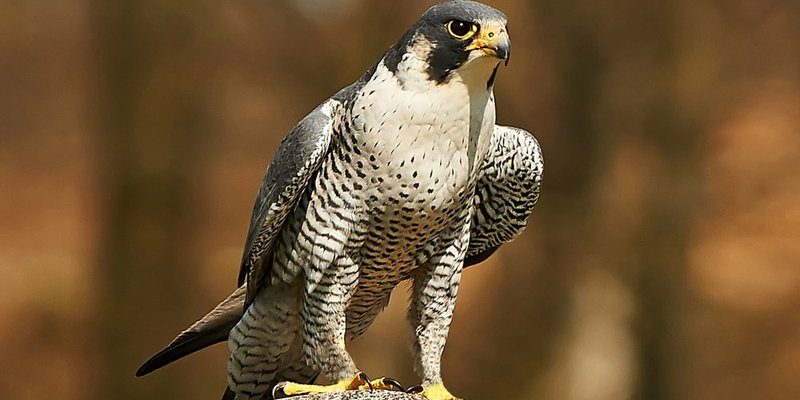
Imagine sharing a cup of coffee while discussing the majesty of falcons. You might say, “Did you know that in some cultures, falcons are seen as messengers from the gods?” It’s true! Falcons have often been looked upon as symbols of power, freedom, and divine connection. This article will dive deeper into the fascinating role of falcons in different cultures and how they’ve been embedded in local folklore around the globe.
Falcons in Ancient Civilizations
Falcons have held a significant place in ancient civilizations. For instance, in Egypt, the falcon was associated with Horus, the god of the sky and kingship. People believed that Horus took the form of a falcon, symbolizing protection and power. They even adorned temples with falcon imagery, hoping to invoke the god’s strength and watchfulness. Picture enormous statues of falcons standing tall, representing the connection between the divine and earthly realms.
In Greece, falcons were also revered, often depicted in art and literature. They were seen as symbols of victory and strength, believed to be the companions of powerful deities like Apollo. The Greeks would watch these birds during hunting to understand their behaviors, often drawing parallels to their own lives and struggles. Isn’t it amazing how these civilizations looked at falcons and saw more than just birds? They saw the embodiment of qualities they aspired to achieve themselves.
The Falcon in Native American Culture
In Native American culture, falcons are often seen as spiritual guides. Many tribes believe that these birds carry messages from the spirit world, acting as intermediaries between humans and the divine. For them, spotting a falcon can be a sign of good fortune or an omen foreshadowing change. It’s as if the falcon is a carrier of wisdom, whispering secrets of the universe to those who pay attention.
Different tribes have unique stories about falcons. For instance, the Pueblo people view the falcon as a protector. They celebrate this bird in rituals and dances, recognizing its role in balancing nature’s energies. It’s heartwarming to think about how a creature as agile as a falcon carries such significant meaning across vast landscapes—truly embodying the spirit of freedom and resilience.
Symbolism of the Falcon in Various Cultures
The falcon symbolizes different virtues depending on the culture. In several Middle Eastern cultures, for instance, the falcon is associated with royalty and honor. The sport of falconry, which involves training falcons to hunt, has a rich history in these regions, reflecting the falcon’s esteemed status. Owning a falcon is seen as a mark of prestige, and the bond between falconers and their birds is profound, often described as familial.
Speaking of falconry, did you know that falcons can fly at speeds over 200 miles per hour? This impressive speed not only astounds bird enthusiasts but also symbolizes swiftness and agility in folk tales. In many stories, falcons represent the idea of overcoming obstacles with grace and determination, embodying a spirit that we can all aspire to.
Folklore and Myths Involving Falcons
Folklore and myths surrounding falcons are rich and varied. In some cultures, falcon stories narrate heroic deeds. For example, there’s a tale of a falcon that saved a village from a fierce storm by guiding the people to safety. These narratives often showcase the falcon’s intelligence and bravery, qualities that resonate with human experiences of facing adversity.
In Scandinavian myths, the falcon is frequently depicted as a messenger, bridging the gap between the earthly world and the divine. These tales often incorporate themes of love and sacrifice, where falcons carry messages of hope across great distances. You might find yourself imagining a falcon soaring through stormy skies, delivering heartfelt words, illustrating the power of connection in the face of trials.
Conservation and the Falcon’s Modern Role
Today, the falcon is not only a symbol of cultural significance but also a beacon for conservation efforts. With several species facing threats from habitat loss and climate change, many organizations are working to protect these remarkable birds. People are actively engaging in falcon conservation projects, recognizing their ecological importance.
Falcons are also part of educational programs, where they inspire awe and respect for wildlife. Have you ever seen a falcon up close? Their fierce yet beautiful nature captivates audiences, reminding humans of the responsibility we hold in safeguarding the environment. It’s wonderful to think that a bird might inspire not just stories but also action toward a better future for wildlife.
The Falcon in Art and Literature
Falcons have made significant appearances in art and literature throughout history. From ancient carvings to modern paintings, these birds have captivated artists due to their striking features and symbolic meanings. The falcon often represents freedom and vision, serving as a muse for countless creative expressions.
In literature, falcons embody themes of exploration and freedom in stories that span cultures. They often appear as protagonists or allies, guiding characters on their journeys. Think about a story where a hero embraces the spirit of a falcon—flying high above challenges and gaining new perspectives. This imagery evokes a sense of inspiration, urging readers to reach for their own dreams.
Wrapping Up the Legacy of Falcons in Folklore
The falcon’s role in local cultures and folklore is multifaceted and rich. From ancient civilizations to modern conservation efforts, these birds have left an indelible mark on human hearts and minds. You might find yourself reflecting on how a creature so small can hold such grand significance in our stories. They symbolize power, freedom, and communication—qualities we all cherish.
As we learn about falcons and their cultural importance, let’s celebrate their existence and continue to protect them. After all, the stories we tell about falcons are not just tales of wonder; they remind us of the beauty of life and the connections we share with nature. So, the next time you see a falcon soaring overhead, remember that it carries the weight of history, culture, and inspiration—an enduring legacy that connects us all.

